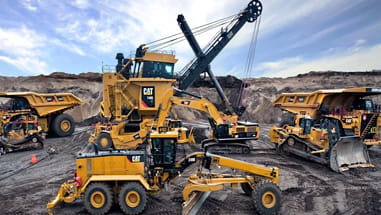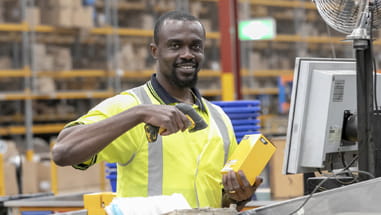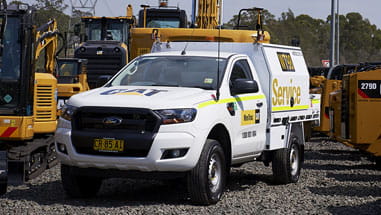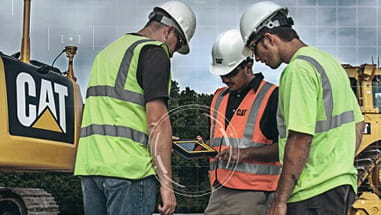Sandstone gets the message out
The Shire of Sandstone is a gold mining town located 742km north east of Perth and is 32,899 square km in size. The local Sandstone council (Sandstone) maintains a large fleet of earthmoving equipment, most of which is Cat yellow. Sandstone recently purchased a new Cat 140 Motor Grader from WesTrac to keep the Shire’s 891 km of roads in tip-top order. Realising the need for an increased focus on men’s health, particularly in regional areas that are already isolated, they wanted to use the grader to get an important message out to men in the community: “Talk to a mate!”
Dave Holland, Works Supervisor at Sandstone, drove the idea to use the grader for good. “Many houses in Sandstone are occupied by single men and it can get quite lonely in such a remote town,” said Dave, “particularly in this time of social distancing so we wanted to encourage these men to talk to each other and we see having this message on the grader as planting the seed to get them started.”
To get this message out, the right way, they partnered with The Regional Men’s Health Initiative (RMHI). The Initiative’s vision is to empower men and communities to take responsibility for their wellbeing and health. They provide Warrior Education Sessions and interactive health check-ups while advocating mate-ship among men. Their slogan “Before it all gets too much… Talk to a mate!” is the basis for all their initiatives and it’s the same message Sandstone agreed to have emblazoned on their new grader, as shown below.

Terry Melrose, Senior Community Educator at RMHI, has been an advocate for men’s health for over a decade. With COVID-19 throwing a spanner in the works of life, he is ramping up the Initiative’s work in regional areas to help protect men. “Often in business and society in general we hear about the importance of Production, Performance & Profits, but initiatives like this remind us of the other important x-factor and that’s our People,” says Terry. “Looking out for our staff, colleagues and mates is one aspect of Primary Care – which we describe as ordinary people looking after each other.”
While it’s important to look after each other it’s more important to look after yourself. “At the end of the day, my health and wellbeing are my responsibility,” Terry explains. “If I notice something is not right with my physical or mental health (changes to my body, mood or behaviour) I need to act and seek help. Bringing about positive change in our lives starts with having a conversation with either our GP, a supervisor, our employment assistance program or a mate.”
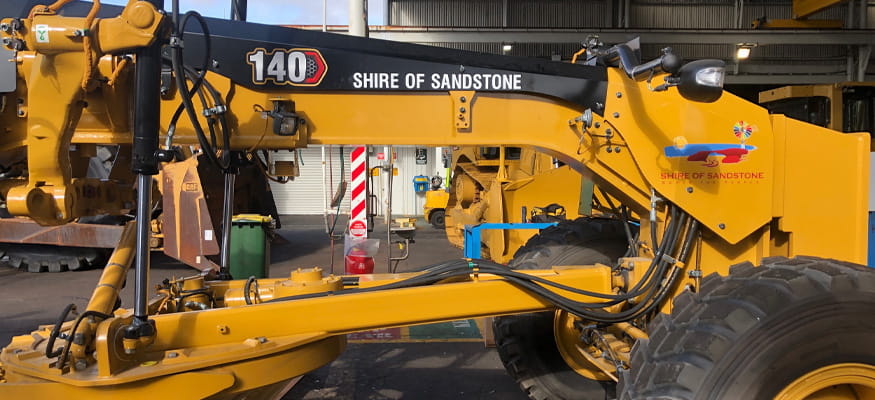
Terry adds, “On behalf of RMHI, I’d like to acknowledge the Shire of Sandstone and WesTrac for supporting, promoting and enabling this important conversation around men’s health and wellbeing in regional, rural and remote WA, especially given current circumstances.”
The impact of COVID-19
Everyone around the world is currently living through one of the most tumultuous periods in modern times, with health issues sky-rocketing because of the changes placed on how we live and work. A recent Australian online survey, commissioned by YouGov, found that 57% of Aussies are feeling stressed, 33% are drinking daily and 70% are drinking more than normal.
Healthline has also reported that men are being hit harder by COVID-19 than women. The World Health Organisation (WHO) reports that men account for 68% of all COVID-19 deaths in Europe. While, in New York City, mean have been dying at almost twice the rate of women. Experts are putting this all down to heart disease, high blood pressure and liver disease being more prevalent in men.
There has never been a more important time to “Talk to a mate!”
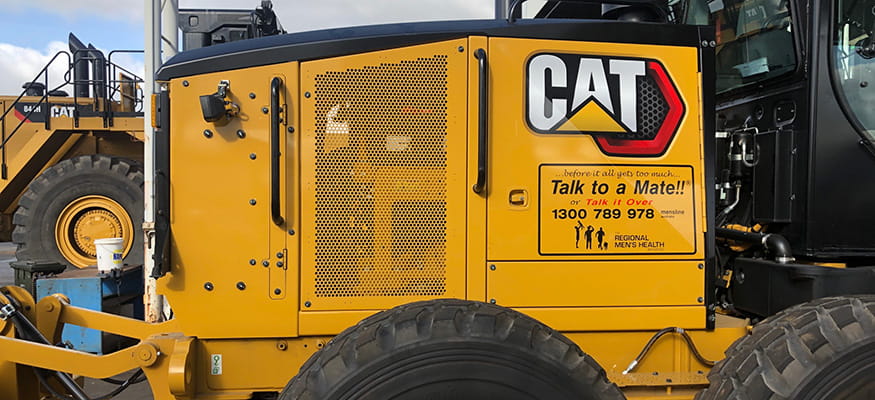
Talk to a mate before it’s too late
Talking to other people about issues in our lives or telling our stories helps us to normalise our experiences and realise we are not alone in having them. Blokes tend to retreat to be alone when things are turning pear shaped, just like they are now with COVID-19. This is the normal way men tend to start processing their problems. While this can help you calm down and get a handle on things, it’s still important to acknowledge and recognise when it’s time to reach out and seek support from co-workers, professionals, friends and family.
RMHI recommends every bloke having a plan in place that outlines who they can turn to when the going gets tough. Without a support network, we all become susceptible to feelings of isolation and loneliness, now more than ever.
WesTrac puts safety first
One of WesTrac's core SPARC values is 'Safety' which we define as "Looking out for me and my mates." With suicide being the number one killer in the construction industry and mental health a growing concern for our people, addressing these issues and providing support has become a major part of our organisational culture.
To encourage our team to look out for each other and to provide support to those who need it we:
Need help?
Here are some resources recommended by RMHI:


